14 Stocks to Sell or Stay Away From
These 14 stocks look like sells for a variety of reasons, whether it's lingering COVID pain, deteriorating fundamentals or, in a couple cases, overdone rallies.


Profit and prosper with the best of Kiplinger's advice on investing, taxes, retirement, personal finance and much more. Delivered daily. Enter your email in the box and click Sign Me Up.
You are now subscribed
Your newsletter sign-up was successful
Want to add more newsletters?

Delivered daily
Kiplinger Today
Profit and prosper with the best of Kiplinger's advice on investing, taxes, retirement, personal finance and much more delivered daily. Smart money moves start here.

Sent five days a week
Kiplinger A Step Ahead
Get practical help to make better financial decisions in your everyday life, from spending to savings on top deals.

Delivered daily
Kiplinger Closing Bell
Get today's biggest financial and investing headlines delivered to your inbox every day the U.S. stock market is open.

Sent twice a week
Kiplinger Adviser Intel
Financial pros across the country share best practices and fresh tactics to preserve and grow your wealth.

Delivered weekly
Kiplinger Tax Tips
Trim your federal and state tax bills with practical tax-planning and tax-cutting strategies.

Sent twice a week
Kiplinger Retirement Tips
Your twice-a-week guide to planning and enjoying a financially secure and richly rewarding retirement

Sent bimonthly.
Kiplinger Adviser Angle
Insights for advisers, wealth managers and other financial professionals.

Sent twice a week
Kiplinger Investing Weekly
Your twice-a-week roundup of promising stocks, funds, companies and industries you should consider, ones you should avoid, and why.

Sent weekly for six weeks
Kiplinger Invest for Retirement
Your step-by-step six-part series on how to invest for retirement, from devising a successful strategy to exactly which investments to choose.
Seasoned investors know that generating superior returns isn't just about putting the right equities into your portfolio. It's also about identifying stocks to sell – whether it's to lock in gains or limit losses – and knowing what companies you should avoid.
Knowing what to bail on right now isn't so clear-cut. Much of the stock market has recovered from the COVID-related crash, with many equities trading close to or even above their pre-pandemic levels. The market hardly feels normal, but it at least feels more normal than it was.
However, not every stock has regained its footing. Some companies that were being buffered by headwinds before the pandemic hit are in even worse shape now due to eroding sales and profits and overstretched balance sheets. Investors who have held on hoping for a similar recovery in shares such as these, or investors looking for dips they can still buy, might want to consider putting their funds elsewhere.
And in a few cases, some stocks have perhaps advanced too far too fast, making additional upside much more difficult to come by.
Here are 14 stocks to sell or stay away from right now. Note that none of these companies seem like they're destined for the bankruptcy pile, and even small positive changes in fortune could lead to short-term rips in these stocks. However, most face a significantly difficult path for at least the next year, and many in the analyst community are predicting little upside if not considerable additional downside ahead.
Data is as of July 20.
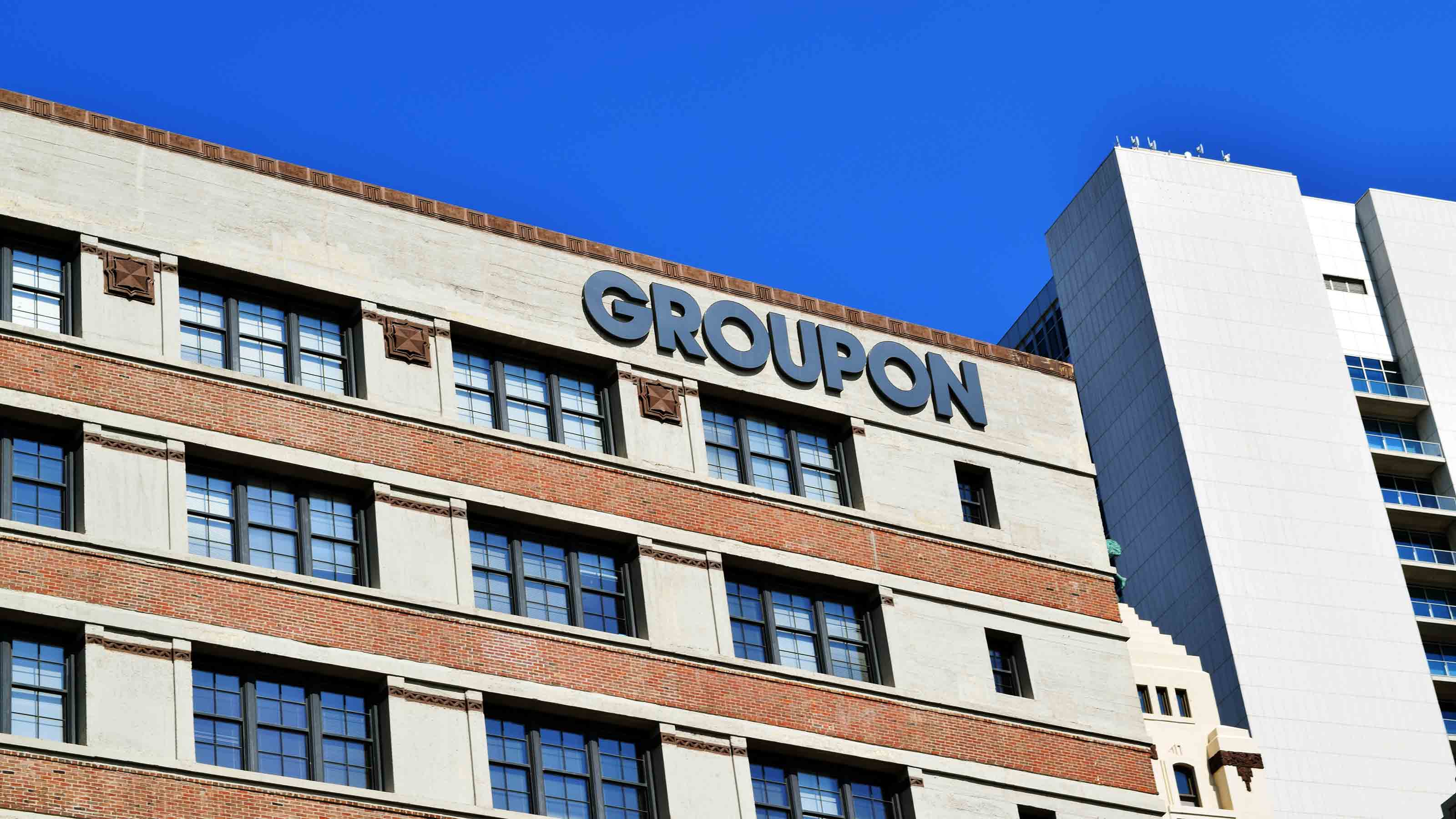
Groupon
- Market value: $464.3 million
- Year-to-date price change: -66.1%
Groupon (GRPN, $16.21) created a business serving as the middleman between consumers and merchants, offering deep discounts on goods and services via its online store. The markets that Groupon serves have been hit hard by the pandemic; much of the company's business consisted of tourists seeking discounts on tours and local attractions, and this segment of its business has all but dried up.
But what should make investors wary is that GRPN was also struggling well before COVID-19 existed. Groupon has delivered 13 consecutive quarters of year-over-year revenue declines and net losses in five of the past six quarters.
Groupon hoped to improve earnings by shedding the low-margin goods business (by the end of 2020) to focus instead on local experiences, but unit sales in this segment have been decimated by the COVID-19 shutdown. Overall, GRPN revenues fell 35% during the March quarter, and the company recorded an adjusted net loss of $1.63 per share.
More reasons for concern: Groupon removed CEO Rich Williams and COO Steve Krenzer from their roles in March, and the company executed a 1-for-20 reverse stock split in June to get its shares back above $1, which is the minimum level required to remain listed on the Nasdaq. (Without that split, GRPN shares would be trading for about 80 cents right now.)
Wall Street's analysts are fairly cold on Groupon, too. While five have a Buy rating on GRPN, eight call it a Hold, and another five put it among their stocks to sell right now. Worse still: The consensus estimate is for 18% annual earnings declines over the next five years.
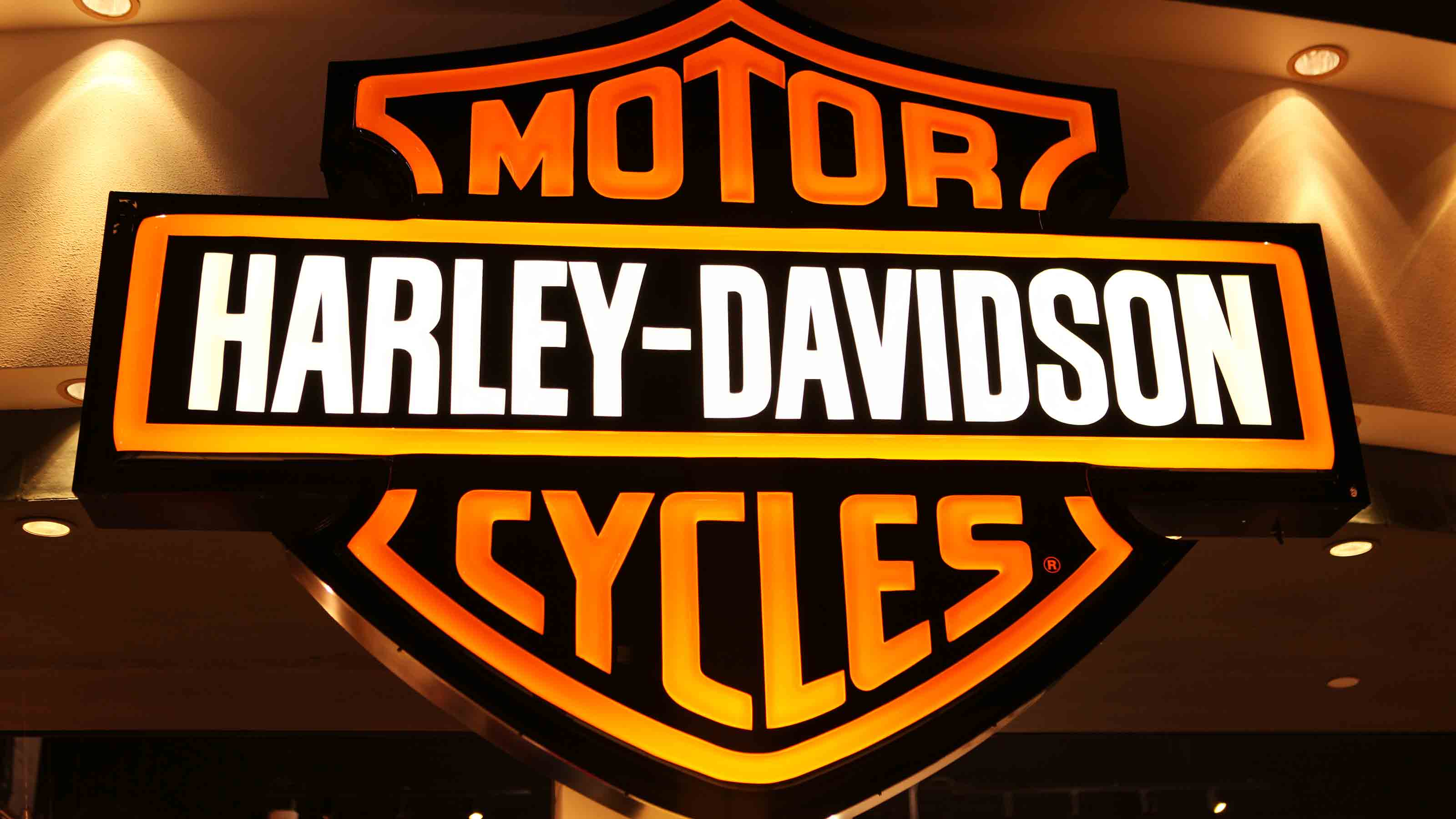
Harley Davidson
- Market value: $4.3 billion
- Year-to-date price change: -24.7%
Harley-Davidson (HOG, $28.00) is the dominant player in large motorcycles. However, despite its iconic brand, the company has been challenged by years of steady decline in the industry. Analysts blame the industry's aging current customer base coupled with a lack of fresh interest from younger consumers.
According to Jalopnik's Erik Shilling, the pandemic is shifting Harley Davidson's plight from precarious to desperate. Purchases of expensive, high-end motorcycles typically fall when the job market weakens.
The company has posted declines in U.S. revenues for 13 consecutive quarters, and five straight years, according to S&P Capital IQ data.
In an April note to investors, Moody's writes, "Principal liquidity sources include approximately $0.8 billion in cash and securities, and $1.8 billion in committed credit facilities. This $2.6 billion in sources marginally cover the $2.3 billion of debt that matures during the coming twelve months at (Harley Davidson Financial Services)." Moody's also downgraded Harley's debt from Baa1 to Baa2, putting it just two notches away from junk status. Later in the month, HOG cut its dividend by nearly 95% to 2 cents per share.
More recently, Harley-Davidson announced a restructuring that will eliminate roughly 700 jobs and produce $42 million of restructuring charges in the June quarter.
Wedbush Securities analyst James Hardiman, who has a Neutral rating on HOG stock, wrote in June that "While we believe that a worldwide pandemic and a new management team have given the company the cover to make some much-needed structural changes, the underlying secular challenges remain." UBS analyst Robin Farley (Neutral) expects the company's inventory cuts to its dealer network to reduce 2020 earnings per share (EPS) by 15% to 27%.
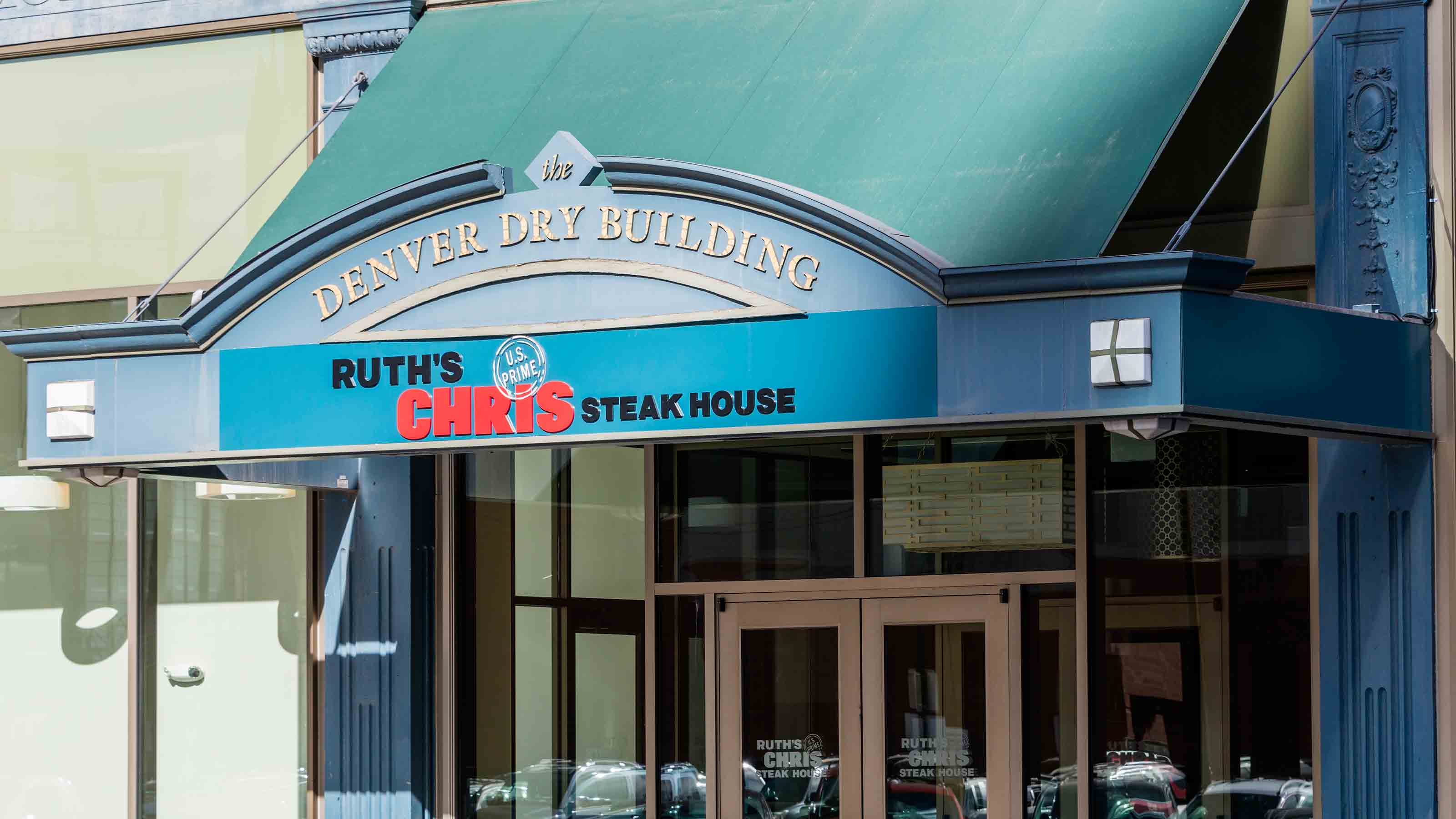
Ruth’s Hospitality Group
- Market value: $186.0 million
- Year-to-date price change: -69.1%
Ruth's Hospitality Group (RUTH, $6.73) has been among the worst performers in the hurting restaurant industry. The company, which is the largest U.S. fine-dining steakhouse chain, operates more than 150 Ruth's Chris Steak House locations worldwide.
The pandemic shutdown caused its restaurant sales to plummet, but Ruth's was already facing headwinds from America's waning appetite for red meat. Nearly one in four Americans report eating less meat, and meat-eaters are shifting away from beef in favor of lighter fare such as chicken.
Ruth's comparable-restaurant sales fell 14% during the March quarter, overall sales dropped 9% and the company recorded a 13-cent-per-share net loss versus a 47-cent profit the year earlier. The March quarter might be just the tip of the COVID-19 iceberg for the steakhouse chain. Ruth's acknowledged comparable-restaurant sales plunged a staggering 84% in April among the 56 of 86 company-owned restaurants that remained open. (RUTH didn't break out franchisee-owned stores but said they're experiencing "disruptions to their business.")
The restaurant chain's main sources of income are business lunch/dinners and tourists. These segments might have a difficult time recovering soon given travel restrictions and work-from-home trends. In addition, fine-dining establishments often are the last restaurant group to recover when the economy tanks.
Ruth's plans for surviving the pandemic revolve around halting construction of new restaurants, suspending dividends and share repurchases and seeking rent breaks and waivers on financial debt covenants. Ruth's also recently issued $43.5 million of new stock, thus diluting existing shareholders. The proceeds from equity sales will be used to repay borrowings and shore up its balance sheet.
Ruth's doesn't have much of an analyst following; of those covering the stock, one says it's a Buy, but the remaining three say it's a Hold.
13 Best Vanguard Funds for the Next Bull Market

Tanger Factory Outlet Centers
- Market value: $587.0 million
- Year-to-date price change: -57.4%
Tanger Factory Outlet Centers (SKT, $6.28) owns and operates 39 outlet shopping centers totaling 14.3 million square feet and spread across 20 states and Canada.
Shopping center real estate investment trusts (REITs) were already facing headwinds from online retailers, and the situation is worsening, as evidenced by bankruptcies among once-reliable tenants like JCPenney (JCPNQ), Payless, J. Crew and GNC (GNCIQ). COVID-19 has been a major blow to the industry, leading to store closings, rent concession demands and fewer tenants making rent payments.
Tanger's funds from operations (FFO), an important metric for REITs, have been problematic. Full-year adjusted FFO were off 7% across 2019 and down 12% year-over-year in Q1 2020. Analyst forecasts expect double-digit FFO declines over each of the next four quarters.
Many investors own REITs to collect rich dividends. Tanger, however, suspended its dividend in May and will face an uphill battle restoring its payout at all – let alone to pre-pandemic rates – if the U.S. economy is slow to fully rebound.
The REIT's portfolio occupancies were still high at 94% during the March quarter, but Tanger signaled that it could get worse. In a sales ad for its Jefferson, Ohio, property, the company says current physical occupancy is 83%, but it cites "67 percent economic occupancy modeled in anticipation of projected vacancies."
Over the past three months, two analysts have called SKT stock a Hold, while another two put it among their stocks to sell. JPMorgan analysts, in modeling their $8 price target, assumed potential 10% to 15% minimum rent cuts for remaining tenants.

Occidental Petroleum
- Market value: $14.6 billion
- Year-to-date price change: -61.9%
Occidental Petroleum (OXY, $15.69) is one of the largest oil producers in the U.S., with major operations in the Permian Basin and Gulf of Mexico. The company greatly enhanced its Permian Basin presence in 2019 via the acquisition of Anadarko Petroleum, but it took on a massive $38 billion debt load to close the deal. This debt load has added considerable risk to its business, particularly with oil and gas prices still trading near multiyear lows.
The contribution from Anadarko led to 57% higher revenues during the March quarter, but Occidental recorded a $2.2 billion net loss that included $1.4 billion in asset impairment charges. While oil and gas production exceeded guidance, a 16% contraction in oil prices and 28% decline in natural gas prices eroded profits. Energy pricing remains weak, and Occidental was forced to reduce its 2020 capital spending plan for a second time – its earlier reduction already had cut spending plans by half.
Occidental had hoped to pare down debt by selling $15 billion of assets, but while it had some success last year, "Given the market condition, we are no longer confident in raising sufficient funds from just divestitures to address all of our near-term debt maturities but have numerous options available," CEO Vicki Hollub said during the company's first-quarter earnings call.
OXY stock earned some attention among speculative investors as its yield hit double digits, but the company cut its dividend by 86% in March. Moreover, in June, Moody's downgraded Occidental's debt to Ba2, two notches below investment-grade. Moody's cited the company's massive debt load and a dim outlook for near-term improvement as reasons for the downgrade.
Like many distressed stocks, OXY could be an excellent short-term swing trade, as a quick recovery in energy prices could cause the stock to shoot higher. But it'll take a lot to put Occidental on solid long-term ground again.
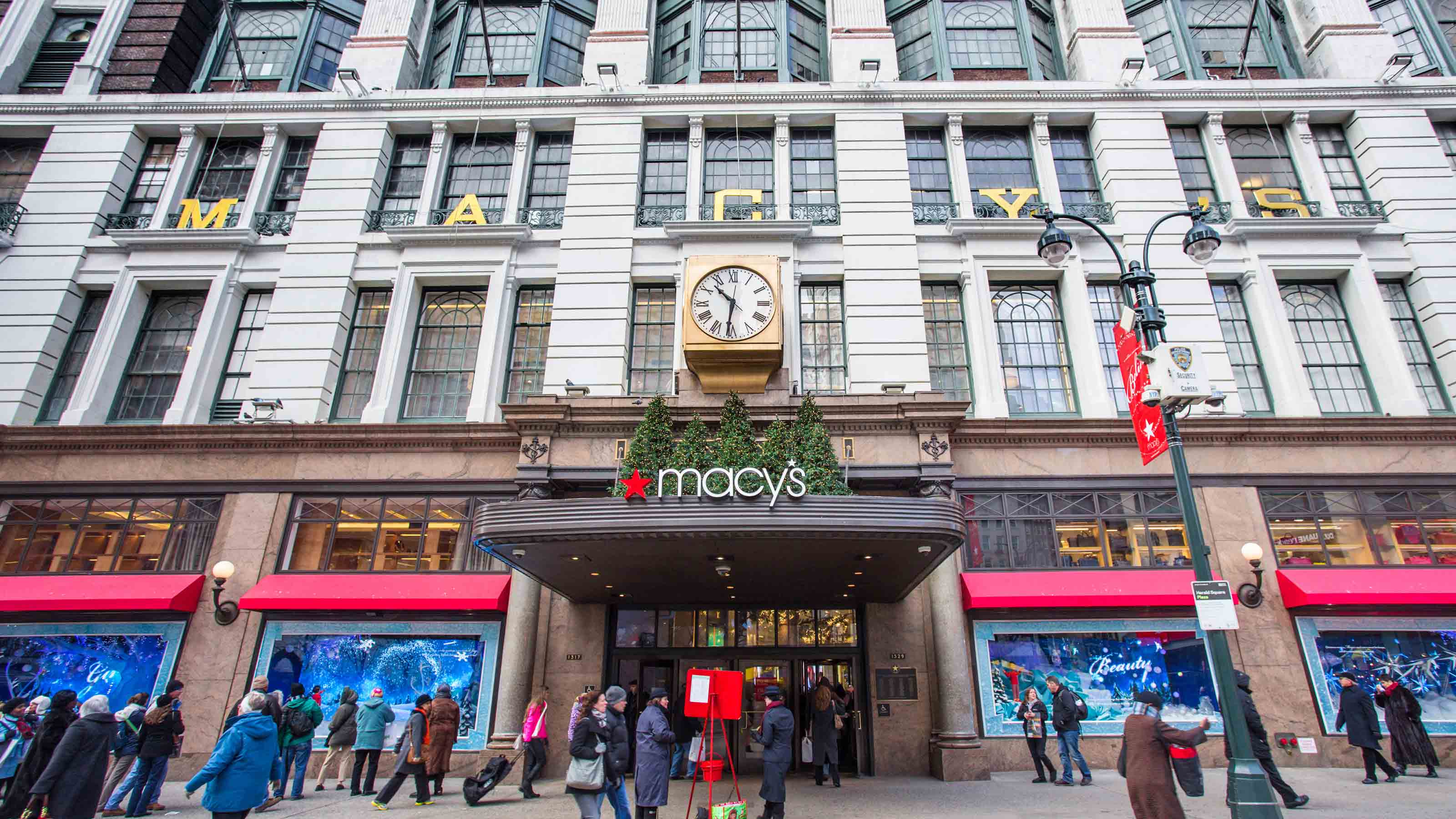
Macy’s
Market value: $2.0 billion
Year-to-date price change: -62.3%
Department store chain Macy's (M, $6.41) already faced big challenges before the coronavirus from steadily declining comparable-store sales and a 30% drop in earnings in 2019 alone. This iconic retailer, which operates apparel stores under the Macy's, Bloomingdale's and Bluemercury brands, announced plans in 2019 to cut costs by closing more stores, bringing its planned total of closures to 125 in three years.
Like other brick-and-mortar retailers, Macy's has been losing customers to online competitors. The COVID-related shutdown of all its stores in mid-March has only exacerbated an already bad situation. Macy's sales fell 45% in the March quarter, resulting in a huge net loss of $2.03 per share versus a 44-cent profit in the year-ago period.
Macy's suspended its $1.52 annual dividend in March and withdrew previously issued 2020 financial guidance.
Macy's targets upscale shoppers, which makes the company's brands more sensitive to economic downturns than other apparel retailers. During the 2008-09 recession, for instance, Macy's comparable-store sales declined roughly 5% in both those years.
CFRA analyst Camilla Yanushevsky reiterated her Sell rating on M stock in July. She thinks the department store will continue to spiral lower and sees Macy's as a riskier player due to its leveraged balance sheet and hard-to-sell real estate.
Cowen analyst Oliver Chen thinks the company needs to close at least 20% to 30% of its stores to restore profits, as well as update its apparel selection to attract younger shoppers.

Outfront Media
- Market value: $2.1 billion
- Year-to-date price change: -45.9%
Outfront Media (OUT, $14.50) is a billboard, transit and digital display REIT that owns approximately 512,000 displays across North America. Its billboards are located along major highways, but the REIT also operates digital displays on transit systems and in sports stadiums under multiyear agreements with universities and city governments.
Growth in the outdoor advertising market is closely correlated with GDP gains, which spells bad news for this industry in 2020. U.S. GDP contracted 4.8% in the March quarter, the biggest GDP drop since 2008, and the outlook for the June quarter is even dimmer.
What puts Outfront Media among stocks to sell now, however, is that the outdoor ad market is slow to rebound during economy recoveries. After the 2008 recession, it took the industry seven years to return to pre-recession levels.
Outfront delivered 3.7% sales growth and 2% adjusted FFO growth during the March quarter. However, sales growth was mainly due to favorable foreign currency exchange rates; excluding this effect, sales were flat. However, the REIT also warned that March quarter results were "not indicative" of things to come and projects revenues and margins materially lower in 2020.
Another indicator of weakness ahead was the company's decision to suspend dividend payments. Outfront had been paying $1.52 per share annually; without the dividend, this low-growth REIT loses some appeal. It also has a high debt-to-equity ratio of more than 4, according to Morningstar data.
Morgan Stanley analyst Ben Swineburne downgraded OUT shares to "Equal Weight" in late April and cut his price target from $35 to $13. He anticipates an overall collapse in the outdoor advertising market will produce at least two more quarters of two quarters of top-line and margin declines, and sees Outfront as risky because of its rising debt leverage.

Park Hotels & Resorts
- Market value: $2.1 billion
- Year-to-date price change: -65.8%
Park Hotels & Resorts (PK, $8.85) is one of America's largest lodging REITs. The company was spun off from Hilton (HLT) in 2017 and currently owns 60 premium-branded hotels and resorts located in major city centers and vacation areas.
Unfortunately for the REIT, travel restrictions, social distancing and mandated closings of non-essential businesses have had a devastating impact on financial performance. Park had to suspend operations at 38 of its hotels because of COVID-19, and based on other disruptions, its rooms available at the end of the March quarter were a mere 15% of full capacity.
Although hotel occupancies were still decent at 61.7% during the March quarter, down from 77.7% in the year-ago quarter, the REIT's adjusted FFO per share sank by 64%. Park anticipates 90% declines in revenue per room during the June quarter and anticipates no material improvement in results until all travel restrictions are lifted and the U.S. economy returns to growth.
Many of the company's prime assets are located in areas hardest hit by the pandemic. These include southern California, San Francisco, Orlando, New Orleans, Miami, New York and Chicago.
The REIT, which suspended its dividend in May, has current liquidity of $1.2 billion and has established a $70 million per month cash burn rate (that assumes all hotels are closed), which suggests enough resources to operate for 17 months.
The problem? Lodging industry experts STR and Tourism Economics don't see American hotel demand returning to pre-pandemic levels until 2023. Their projections for ADR (average daily rates) are even grimmer, with ADR not recovering to pre-2020 levels for at least five years. That implies that even if PK shares do recover, it could take a long time in doing so – and without the dividend, you won't be paid to wait.

Invesco Mortgage Capital
- Market value: $592.2 million
- Year-to-date price change: -80.4%
Invesco Mortgage Capital (IVR, $3.27) is a mortgage REIT that invests in residential and commercial mortgage-related assets. The COVID-19 crisis has increased volatility in financial markets, crushed asset values and caused a liquidity crisis in the structured securities market – all of these factors have crushed this mREIT.
IVR recorded a $1.6 billion net loss during the March quarter, reflecting massive losses on derivative instruments and other investments. Book value per share for the REIT plummeted nearly 70% to just $5.02.
The company said in March that it was forced to delay common and preferred dividend payments thanks to an "unusually high number of margin calls." While those dividends were eventually authorized, the company reduced its payout on common shares a whopping 96% to just 2 cents per share for the second quarter. The REIT ended Q1 with debt of $16.5 billion and a high 5.4 debt-to-equity ratio.
Bank of America analyst Derek Hewett has IVR among his stocks to sell, commencing coverage in June with an Underperform rating. "IVR's capital structure is imbalanced given the relative level of preferred stock, increasing the risk of a dilutive capital raise," he writes, adding that "earnings/dividend visibility is low until IVR begins to implement its revised agency-focused strategy." His $2.50 price target implies another 23% of downside from current levels.
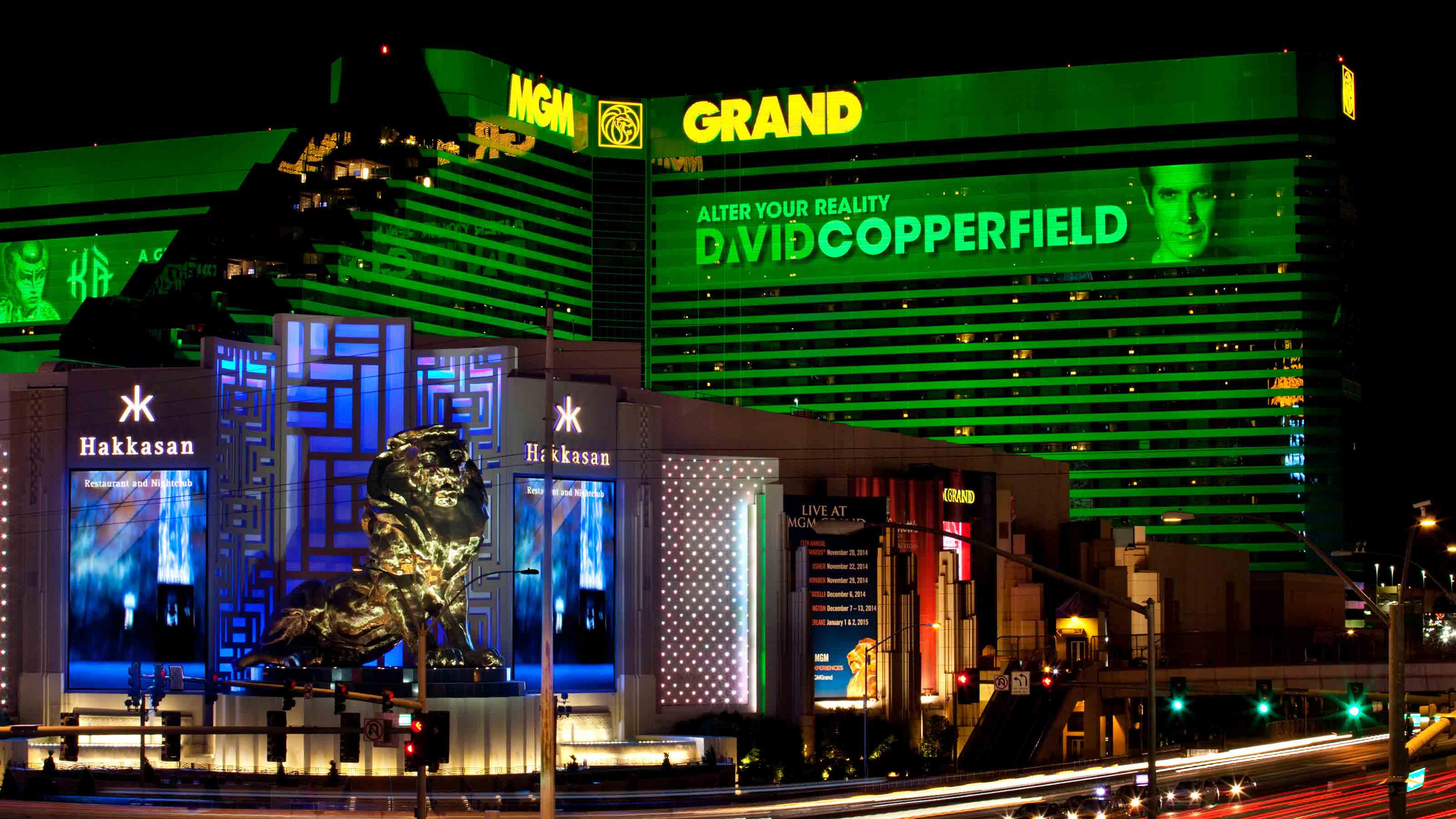
MGM Resorts
- Market value: $8.1 billion
- Year-to-date price change: -50.9%
Casino operator MGM Resorts (MGM, $16.33) is an exceedingly risky bet for income investors. The company chopped its dividend 98% in April and appears unlikely to restore the payout anytime soon. The casino industry has been among the hardest hit by the pandemic, through no fault of its own. Travel restrictions, social distancing and shutdowns of non-essential businesses have created a perfect storm.
MGM, which operates 29 hotel and gaming results in the U.S. and Macau, China, wasn't exactly cruising before the pandemic. The company missed analysts' consensus EPS estimates in eight of its 12 quarters between 2017 and 2019. In the first quarter of 2020, MGM's revenues fell 29%, and the company absorbed a 45-cent-per-share loss versus a 14-cent profit a year ago.
The company estimated its cash burn at about $270 million per month as long as its U.S. properties were closed; it has since opened more than half of its properties. Still, Moody's expects it will take a full year for the U.S. gambling industry to reach 30% of 2019 sales levels and 16 months to reach 60% levels. Moody's also projects a 60% to 70% drop in industry EBITDA (earnings before interest, taxes, depreciation and amortization) through March 2021.
Although MGM's Macau resorts have been reopened since late February, gambling revenues plunged 97% year-over-year in April and 93% in May. Visitors to Macau have been required to quarantine for two weeks, which has caused tourism to all but disappear; that said, some restrictions from within China have been lifted. Nonetheless, worsening tensions between China and the U.S. might keep Western travelers away even after travel is completely unimpeded. That's a problem given that MGM's Macau resorts represented roughly a quarter of the company's revenues in 2019.
MGM hopes to at least partially offset weakness in casino operations by making a big push into online gambling with its BetMGM business, which it expects to launch in 11 states this year. However, this business will require time to ramp and is only projected to generate $130 million of revenues this year.
In June, Wolfe Research analyst Jared Shojaian downgraded MGM Resorts from Outperform (Buy) to Peer Perform (Hold), saying that MGM's "valuation no longer seems compelling" after its bounce off the March lows.
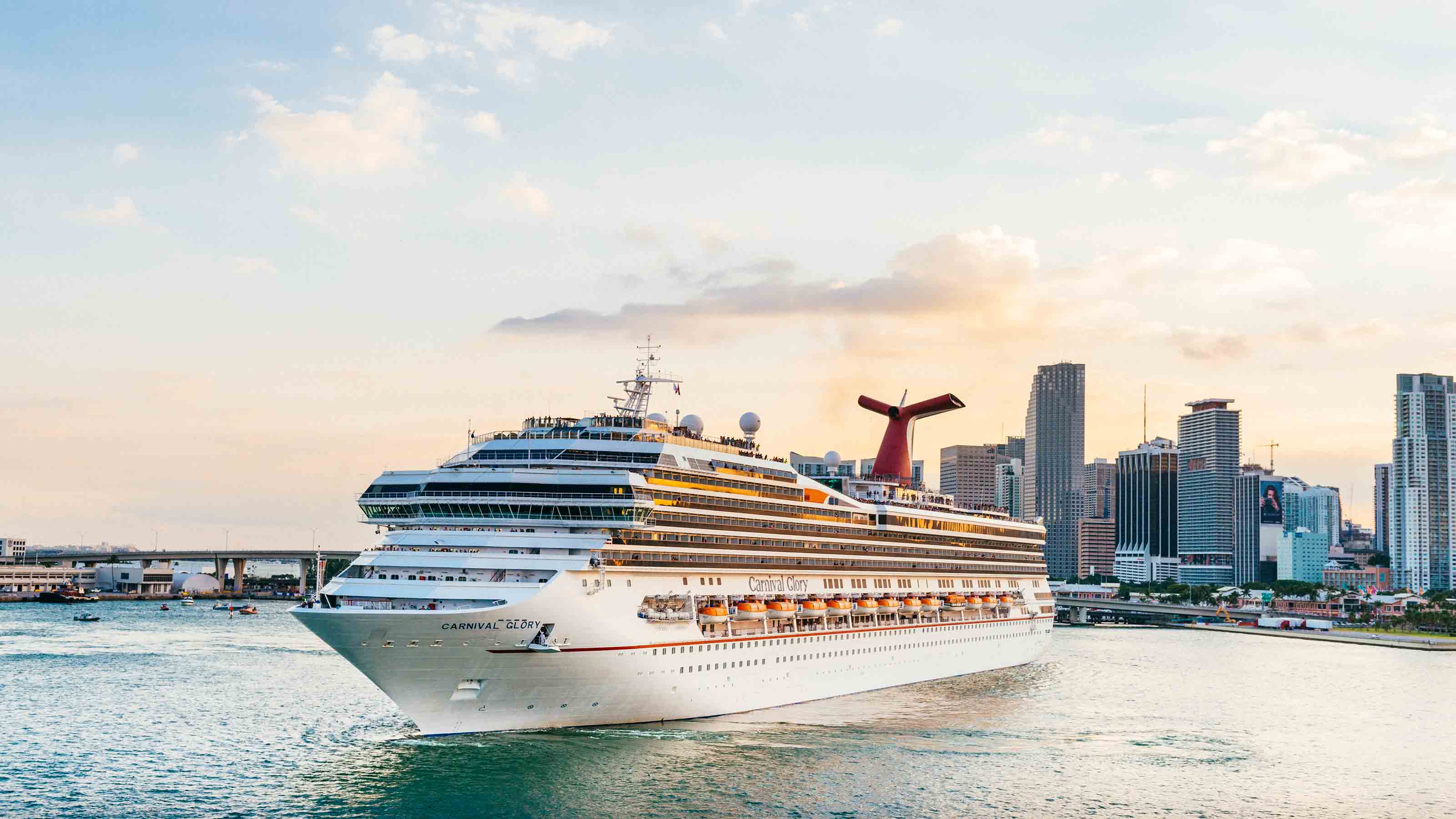
Carnival
- Market value: $11.7 billion
- Year-to-date price change: -70.5%
Prior to the COVID-19 outbreak, cruise ship operator Carnival (CCL, $15.00) offered investors a healthy dividend yielding around 4%. However, dividend payments were stopped in March as the company warned investors it was anticipating big 2020 net losses due to all cruises being cancelled.
Carnival operates approximately 105 cruise ships in the U.S. and internationally under the Carnival, Princess Cruises, Holland America, Cunard and other brand names. And in its nearly 50-year history, Carnival has never before experienced a complete shutdown of its operations. Making a bad situation even worse for CCL is a flurry of lawsuits filed by passengers exposed to COVID-19 during Carnival's Grand Princess voyage in February.
The cruise line had hoped to resume at least limited operations (eight ships) in August, but prospects are fading due to a COVID-19 resurgence in several U.S. port cities. The Centers for Disease Control and Prevention (CDC) recently extended its no-sail order for cruise ships through at least Sept. 30, and many foreign ports remain closed to U.S. ships anyway.
Carnival flipped from a $787 million profit in the six months ended May 31, 2019, to a nearly $5.2 billion loss so far in fiscal 2020. To survive the shutdown, the company has been forced to take on a massive debt load. CCL now sits on nearly $14.9 billion in debt, and Bloomberg reports that it's looking to raise another $1 billion in IOUs. Even when the company does begin operating cruises again, rising interest payments and a higher share count from equity sales is likely to weigh on earnings per share for several quarters.
Moody's put all of the cruise line stocks on review for downgrades in July due to a resurgence of COVID-19 cases in the U.S. Two research firms (SunTrust and Macquarie) also recently downgraded CCL shares because of continued delays in cruise ship restart dates. In a note to investors, SunTrust writes, "We believe there will be continued investor disappointment as further starting date delays are announced. Subsequently … we are cutting our EPS estimates due to assumptions for delayed starting dates and our 2021 EPS estimates are materially below consensus while our 2022 EPS are at or modestly below consensus."
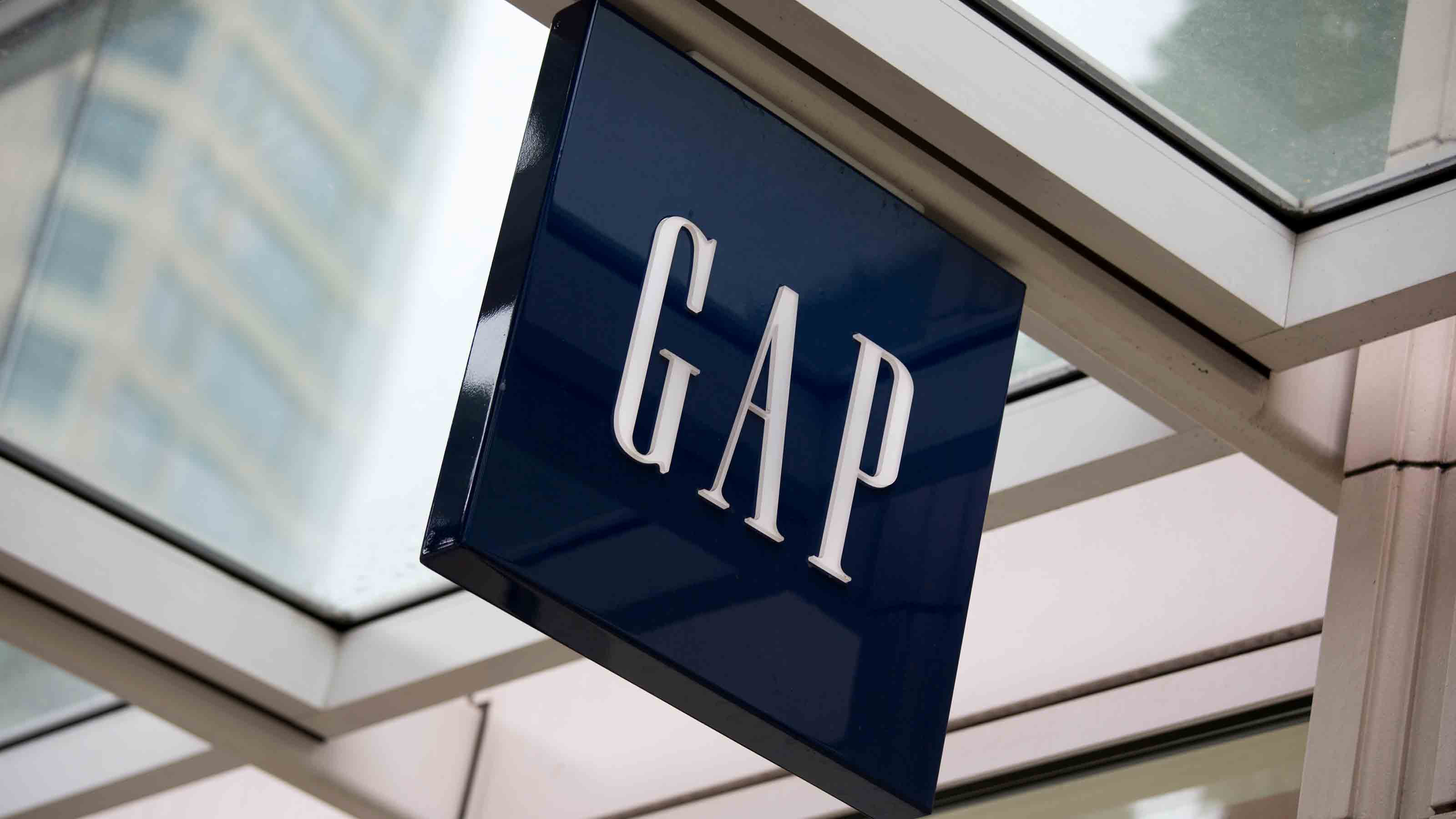
Gap
- Market value: $4.6 billion
- Year-to-date price change: -29.8%
Apparel retailer Gap (GPS, $12.41) owns the Gap, Old Navy, Athleta and Banana Republic fashion brands, which are marketed through approximately 3,900 company-owned and franchise stores and online. The Gap was arguably America's best-known fashion retailer at one point.
But fashion is fickle, and the chain's favored status has eroded in recent years. Gap frequently posts quarterly comparable-store sales declines and consumers complain its brands lack relevancy. Even big discounts on its merchandise have failed to attract more shoppers to its stores.
Gap blamed store closures for a 43% decline in March quarter sales, a $1.2 billion operating loss and negative year-to-date free cash flow of $1.1 billion. However, even in March, when GPS reported fiscal 2019 results, it forecast comparable-store and net sales declines for 2020 – guidance that "largely does not incorporate any estimated impact from the coronavirus outbreak."
The company has roughly $1.1 billion of cash and short-term investments, but nearly $7 billion in long-term debt and liabilities. To reduce cash burn, Gap suspended both dividends and rent payments for closed stores, and reduced its inventory and employee headcount.
Some investors believed the company's partnership with Kanye West, announced in late March, could trigger a turnaround. However, Bank of America analyst Lorraine Hutchinson (Underperform) expressed doubts in an early July note, writing, "We have doubts around the impact's duration and see an elevated risk of distractions from the partnership (i.e. West recently tweeted he is running for President)." Sure enough, later in the month, West threatened to end partnerships with Gap and Adidas (ADDYY) unless he was put on their corporate boards.
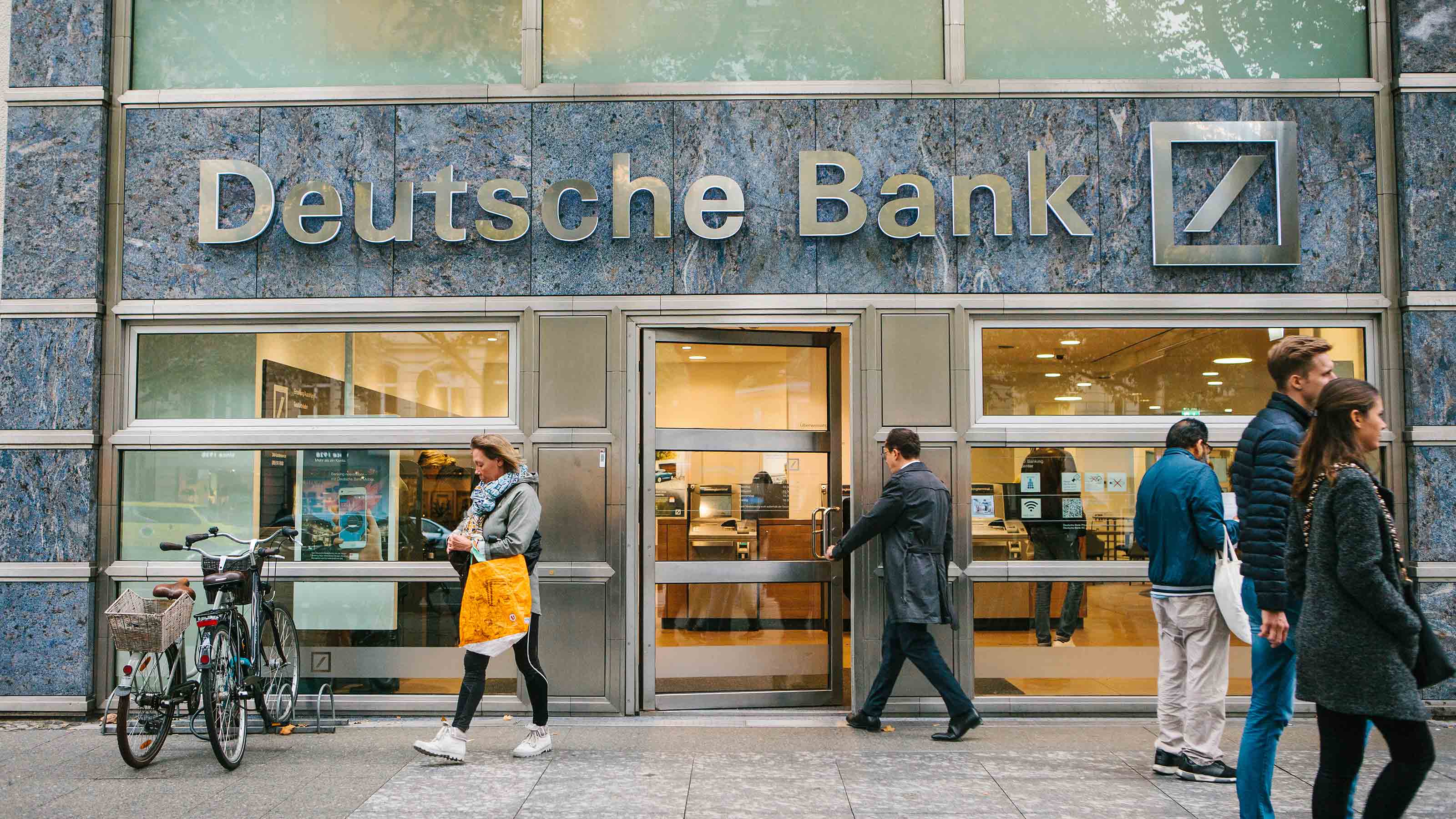
Deutsche Bank
- Market value: $21.0 billion
- Year-to-date price change: +30.9%
Deutsche Bank (DB, $10.08) is one of a couple of stocks to sell that, rather than faceplanting this year, have perhaps run too hot in 2020.
DB is Germany's largest bank, providing investment and financial products and services to individuals and institutions globally. At year-end 2019, the bank operated more than 1,900 branches worldwide.
The Federal Reserve categorized Deutsche Bank as "troubled" in 2017, and much is still the same three years later. Recent events have put this bank back in the regulatory spotlight.
Deutsche Bank was ordered to pay $150 million in penalties to New York authorities in July due to compliance failures in its dealing with Jeffrey Epstein, Danske Bank Estonia and FBME Bank. Its litigation problems aren't over, either. Shareholders are seeking unspecified damages from the bank for losses incurred because of the bank's ties to Epstein.
Dividend payments stopped in 2018, and the bank is in the middle of a major restructuring that will cut thousands of jobs by 2022. Deutsche Bank's March-quarter profits fell 67% and revenues were flat. A singular bright spot was investment banking operations, which posted 18% revenue gains due to corporate customers issuing debt. However, the bank's CEO sees a slowdown in debt capital markets in the coming months.
DB is downright disliked by Wall Street analysts. The company has garnered six Hold calls over the past three months, while nine other pros have listed Deutsche Bank among their stocks to sell. The current consensus price target of $7.23 per share is some 28% below current prices, and DB currently trades at 33 times estimates for next year's profits. That's compared to a 20 forward P/E for the S&P 500.

Blue Apron Holdings
- Market value: $182.8 million
- Year-to-date price change: +107.6%
Blue Apron (APRN, $13.66) has been a rock star in 2020. The food delivery industry has thrived during the pandemic thanks to stay-at-home orders and social distancing, and APRN has pulled off a doubler in just less than half a year.
Blue Apron's customer base and number of orders declined during the March quarter, but the company began experiencing surging demand for its meal kits in late March as restaurant were closed and shelter-at-home was mandated.
A closer look at Blue Apron's past performance raises questions about the company's runway to earnings even with sales fueled by COVID-19 tailwinds. Blue Apron has been unprofitable every quarter since its 2017 IPO, according to S&P Capital IQ data, and has recorded eight consecutive quarters of year-over-year revenue declines, including a 28% March-quarter sales drop.
That Blue Apron has consistently failed to generate profits even at higher revenue rates suggests a business model that doesn't scale effectively. So do estimates for a $3.67-per-share loss this year and a $2.49-per-share loss in 2021.
Another concern is that even if the company does turn profitable, online challengers such as Walmart (WMT) and Amazon.com (AMZN) could step up their own meal-kit businesses. Both potential rivals have huge customer bases, large existing grocery operations that give them scale and lower food costs and deeper pockets for building a meal kit business from scratch.
If you've enjoyed the fruits of APRN's run, pat yourself on the back – you've done well. But also consider locking in some of those earnings. Shares might have little room for additional gains if the company isn't able to sustain its top-line growth or turn it into a profit.
Profit and prosper with the best of Kiplinger's advice on investing, taxes, retirement, personal finance and much more. Delivered daily. Enter your email in the box and click Sign Me Up.

Lisa currently serves as an equity research analyst for Singular Research covering small-cap healthcare, medical device and broadcast media stocks.
-
 Dow Adds 1,206 Points to Top 50,000: Stock Market Today
Dow Adds 1,206 Points to Top 50,000: Stock Market TodayThe S&P 500 and Nasdaq also had strong finishes to a volatile week, with beaten-down tech stocks outperforming.
-
 Ask the Tax Editor: Federal Income Tax Deductions
Ask the Tax Editor: Federal Income Tax DeductionsAsk the Editor In this week's Ask the Editor Q&A, Joy Taylor answers questions on federal income tax deductions
-
 States With No-Fault Car Insurance Laws (and How No-Fault Car Insurance Works)
States With No-Fault Car Insurance Laws (and How No-Fault Car Insurance Works)A breakdown of the confusing rules around no-fault car insurance in every state where it exists.
-
 Dow Rises 313 Points to Begin a Big Week: Stock Market Today
Dow Rises 313 Points to Begin a Big Week: Stock Market TodayThe S&P 500 is within 50 points of crossing 7,000 for the first time, and Papa Dow is lurking just below its own new all-time high.
-
 Dow, S&P 500 Rise to New Closing Highs: Stock Market Today
Dow, S&P 500 Rise to New Closing Highs: Stock Market TodayWill President Donald Trump match his Monroe Doctrine gambit with a new Marshall Plan for Venezuela?
-
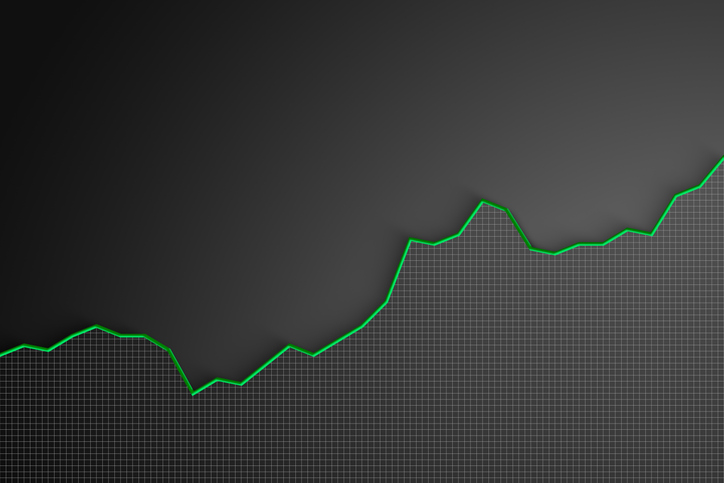 Stocks at New Highs as Shutdown Drags On: Stock Market Today
Stocks at New Highs as Shutdown Drags On: Stock Market TodayThe Nasdaq Composite, S&P 500 and Dow Jones Industrial Average all notched new record closes Thursday as tech stocks gained.
-
 Investing Freebies: Perks You Get for Owning These Stocks
Investing Freebies: Perks You Get for Owning These StocksWhile the biggest investing returns come over the long term, these companies offer instant gratification for investors with several freebies and perks.
-
 The Riskiest S&P 500 Stocks Right Now
The Riskiest S&P 500 Stocks Right NowBuyer beware: These are five of the riskiest stocks in the S&P 500 at the moment, based on one measure of volatility.
-
 The 24 Cheapest Places To Retire in the US
The 24 Cheapest Places To Retire in the USWhen you're trying to balance a fixed income with an enjoyable retirement, the cost of living is a crucial factor to consider. Is your city the best?
-
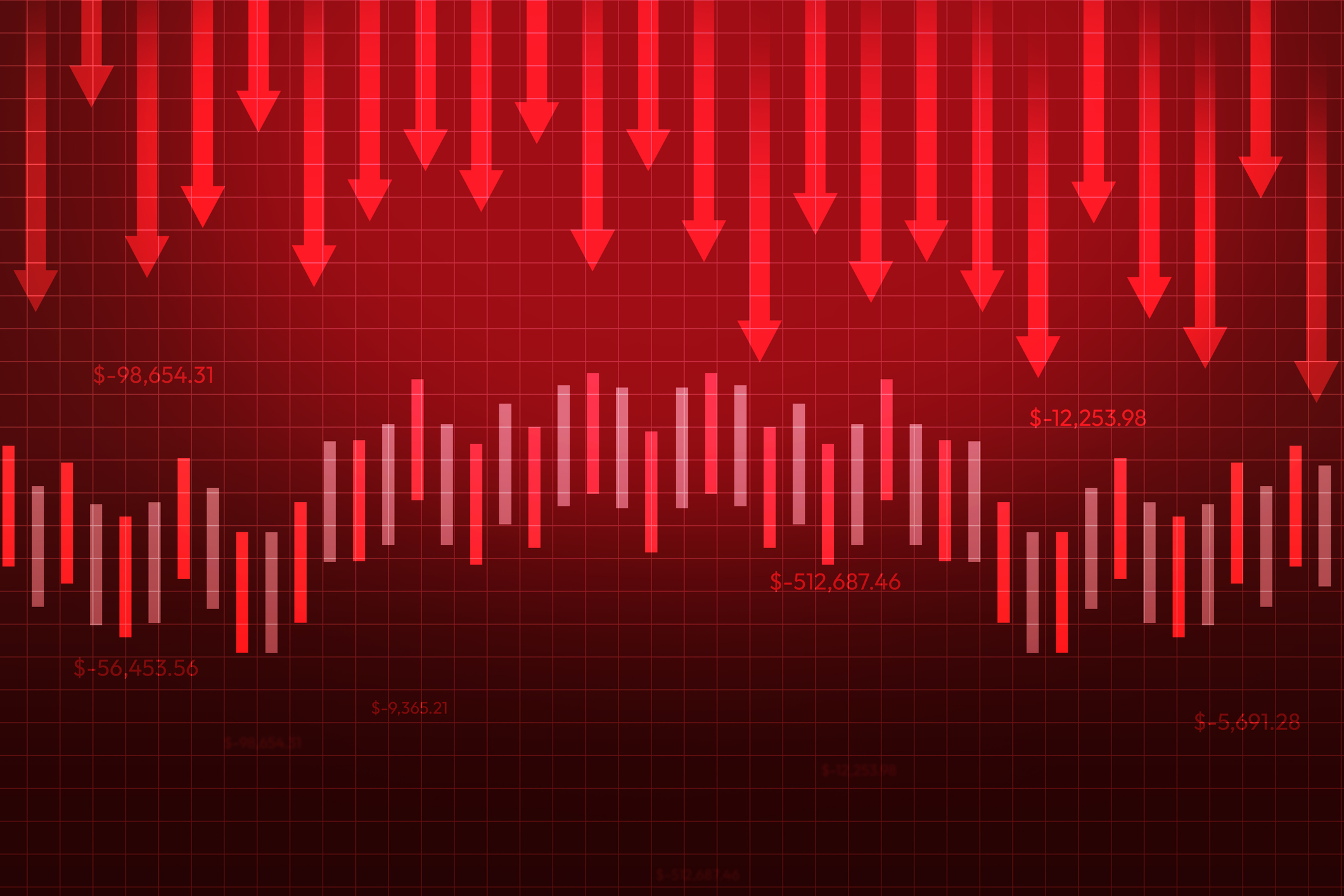 Stock Market Today: Dow Sinks 333 Points as Mega Caps Slide
Stock Market Today: Dow Sinks 333 Points as Mega Caps SlideThe main indexes sold off at the open and stayed lower through the close, putting the Santa Claus rally at risk.
-
 Travel Stocks I've Got an Eye On
Travel Stocks I've Got an Eye OnGoing places to gather experiences, learn and relax is what people do as income grows and these travel stocks are likely to benefit from that trend.
